Weight Loss
Reviewing the Best Weight Loss Programs of 2019
Published
7 years agoon

A good weight loss program can change your life. A bad weight loss program can leave you feeling frustrated and weak.
Many weight loss programs make similar claims. They claim to help you lose weight and keep it off, for example. They promise that you only need basic amounts of dieting and exercise to be successful. Some claim to be backed by concrete scientific evidence.
With so many weight loss programs out there, it’s hard to know which one is right for you. Today, we’re highlighting the best weight loss programs available today for those who want real results.
Rankings
The DASH Diet
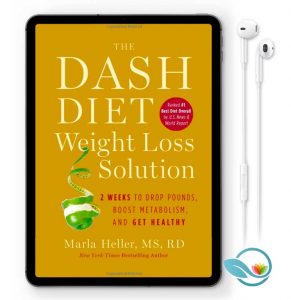
The DASH Diet is at the top of many weight loss program lists today. The diet is particularly popular among those who want to lower blood pressure, speed up weight loss, and prevent diabetes. The acronym stands for Dietary Approaches to Stop Hypertension.
Although it’s catered towards those with high blood pressure, the DASH Diet is popular among all groups of people. It involves loading up on fruits, vegetables, and whole grains while removing foods rich in saturated fats from your diet. Studies have shown it can reduce high blood pressure and even prevent the onset of type 2 diabetes, among other benefits.
The thing we like most about the DASH Diet is that there are no scammy diet pills or disgusting pre-packaged meals to buy. You’re not paying for a subscription. Sure, you can buy DASH Diet recipe books online. However, everything you need to know about the DASH Diet is available online for free.
If you’re looking for a weight loss program backed by more scientific research than virtually anything else on this list, then the DASH Diet may be the right choice for you.
Mayo Clinic Diet
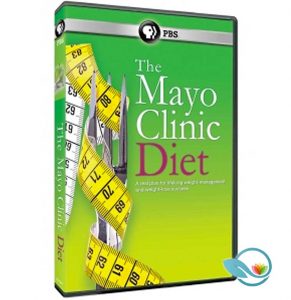 The Mayo Clinic Diet is one of the most science-backed weight loss programs available today. It’s the official diet recommended by the Mayo Clinic, one of the top medical centers in the United States. The diet is easy to follow, does not require you to buy overpriced supplements or meals, and can genuinely lead to long-term weight loss.
The Mayo Clinic Diet is one of the most science-backed weight loss programs available today. It’s the official diet recommended by the Mayo Clinic, one of the top medical centers in the United States. The diet is easy to follow, does not require you to buy overpriced supplements or meals, and can genuinely lead to long-term weight loss.
While following the Mayo Clinic Diet, expect to eat lots of fruits, vegetables, and whole grains. The diet starts with an intensive two-week cleanse during which you can lose 6 to 10 pounds. After that, you may lose 1-2 pounds per week until reaching your target weight.
You can follow the Mayo Clinic Diet’s advice online. Or, you can download the app for free or splurge on a premium subscription, which costs $2 to $4 per week depending on the length of your subscription. The free version of the app, however, contains plenty of great advice and many people will not feel the need to upgrade.
WW
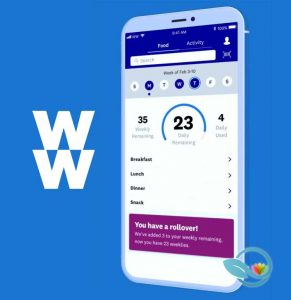 Weight Watchers now calls themselves “WW”. The program has been around for decades, so you might think it’s outdated by modern standards. However, WW has done a good job of keeping up with the times. The program has been repeatedly updated over the years. Today, it continues to be one of the best diet and weight loss programs on the market.
Weight Watchers now calls themselves “WW”. The program has been around for decades, so you might think it’s outdated by modern standards. However, WW has done a good job of keeping up with the times. The program has been repeatedly updated over the years. Today, it continues to be one of the best diet and weight loss programs on the market.
WW promises to help you lose 2.6% more weight than an average diet and exercise program. Although WW’s program has changed over the years, the core “points” system remains the same. Certain foods are worth a certain number of points. No foods are off limits, although some foods are worth more points than others.
If you don’t like obsessively tracking calories and other macronutrients, then the WW points system can be very easy to follow.
HMR Program
 The Health Management Resources (HMR) program is an intense weight loss and lifestyle change program that claims to help you lose weight fast and build healthier routines that last.
The Health Management Resources (HMR) program is an intense weight loss and lifestyle change program that claims to help you lose weight fast and build healthier routines that last.
If you like structured diet and exercise programs, then the HMR Program may be the right choice for you. As long as you can follow the structure of the program, you should be able to start losing weight and building healthy long-term habits. Many dieters also like the coaching, digital resources, and online community of the HMR Program.
An average day on the HMR Program consists of at least 3 shakes, 2 entrees, and 5 servings of fruits and vegetables. The program also recommends doing at least some physical activity every day – even if it’s just a few short walks. All diet and exercise can be tracked with the HMR app.
Atkins Diet
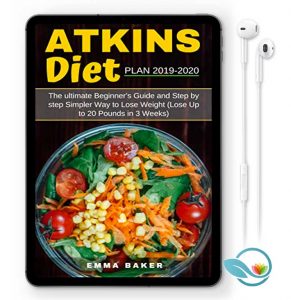 The Atkins Diet skyrocketed in popularity in the 90s and 2000s. It’s known as the original low-carb diet. Some studies show that the Atkins Diet is extremely effective, delivering weight loss results 2.9% better than ordinary diet and exercise. Others have shown that the Atkins Diet isn’t as effective over the long-term, leading to weight loss results just 0.1% better than ordinary diet and exercise.
The Atkins Diet skyrocketed in popularity in the 90s and 2000s. It’s known as the original low-carb diet. Some studies show that the Atkins Diet is extremely effective, delivering weight loss results 2.9% better than ordinary diet and exercise. Others have shown that the Atkins Diet isn’t as effective over the long-term, leading to weight loss results just 0.1% better than ordinary diet and exercise.
If you don’t want to severely reduce carbs to lose weight, then the Atkins Diet may be the right choice for you. It’s not perfect, and it’s not for everyone, but it has proven to be effective in multiple studies.
Zone Diet
 The Zone Diet uses a similar basic principle to the Atkins Diet: you can cut out cars to lose weight. It combines this with something unique, however: by eating frequently, you can keep the body full, prevent food cravings, and lose weight naturally.
The Zone Diet uses a similar basic principle to the Atkins Diet: you can cut out cars to lose weight. It combines this with something unique, however: by eating frequently, you can keep the body full, prevent food cravings, and lose weight naturally.
The diet is based on the idea of sticking to a specific ratio of 40% carbs, 30% protein, and 30% fat. Ideally, the carbs you consume will have a low glycemic index. If you can follow this rough guideline, then you may improve your health and wellness.
A study published in the Journal of the American Medical Association (JAMA) found that the Zone Diet outperformed the Atkins Diet and WW over a one year period. However, there have been few other studies demonstrating the long-term effectiveness of the Zone Diet.
My Fitness Pal
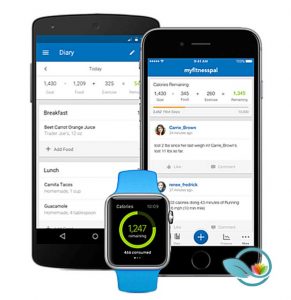 My Fitness Pal offers a free or cheap approach to losing weight. You download the app, then begin a (mostly) self-guided journey to weight loss results. My Fitness Pal is like 10 different fitness, dieting, and tracking apps rolled into one. You get an exercise tracker, meal planner, calorie counter, and more, for example.
My Fitness Pal offers a free or cheap approach to losing weight. You download the app, then begin a (mostly) self-guided journey to weight loss results. My Fitness Pal is like 10 different fitness, dieting, and tracking apps rolled into one. You get an exercise tracker, meal planner, calorie counter, and more, for example.
Most My Fitness Pal features are available for free. The free version contains advertisements. You can upgrade to the Premium plan for $10 per month to lose the ads and access more detailed breakdowns of daily nutrients or set detailed goals.
We also appreciate My Fitness Pal because it encourages you to be self-sufficient: you’re not receiving prepackaged, low-calorie meals in the mail every week. Instead, you’re encouraged to cook healthier meals at home every day. You track every meal and snack in the calorie counter. For many people, this is the best way to get long-term results. Those who want more structure, however, and want to be told what to do, may opt for a program like Jenny Craig or Nutrisystem.
Vegetarian and Vegan Diets
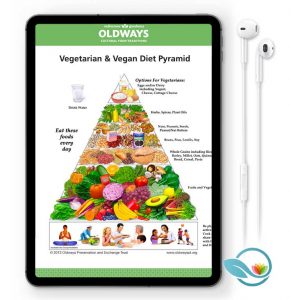 Not all weight loss programs have to be created by private companies. A growing number of healthcare organizations now recommend vegetarian and vegan diets. The Academy of Nutrition and Dietetics, for example, released a paper this year stating that vegan and vegetarian diets are the best choices for people’s health. That organization is one of the top nutrition authorities in the United States.
Not all weight loss programs have to be created by private companies. A growing number of healthcare organizations now recommend vegetarian and vegan diets. The Academy of Nutrition and Dietetics, for example, released a paper this year stating that vegan and vegetarian diets are the best choices for people’s health. That organization is one of the top nutrition authorities in the United States.
If you find adopting a full-time vegan or vegetarian diet difficult, then consider a part-time diet. A part-time diet allows you to focus mostly on veggies while still eating fish, meat, dairy, and eggs a few times per week. Others, of course, may want to jump right into a full vegan diet.
With more vegans and vegetarians in the world today than ever before, it’s easy to follow a vegetarian or vegan diet.
Flat Belly Diet
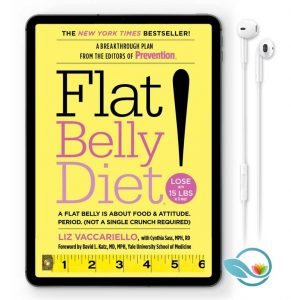 The Flat Belly Diet is like a modified version of the Mediterranean diet. Expect to take lots of healthy fats, fruits, and vegetables with limited amounts of red meat.
The Flat Belly Diet is like a modified version of the Mediterranean diet. Expect to take lots of healthy fats, fruits, and vegetables with limited amounts of red meat.
The core tenet of the Flat Belly Diet is that you can reduce belly fat by eating more monounsaturated fatty acids (MUFAs). These fatty acids target and destroy belly fat while also promoting fullness and preventing overeating. Expect to eat lots of plant-based fats in nuts, seeds, chocolate, avocados, and olive oil.
One of the criticisms of that Flat Belly Diet is that some people have trouble sticking to the program over a long period of time. It also has fewer professional scientific studies than most other diets on this list. However, one study suggested that those following the Flat Belly Diet can lose up to 15 pounds in 32 days.
Keto Diet
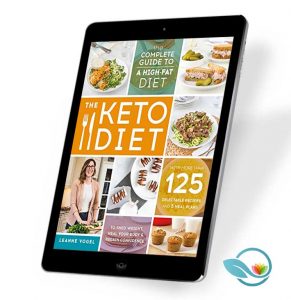 The ketogenic diet, or keto diet, is a low-carb, high-fat diet linked with various health benefits. Supporters of the keto diet claim it’s the best way to lose weight and improve your health. Some dieticians, however, claim it’s one of the worst diets for your health.
The ketogenic diet, or keto diet, is a low-carb, high-fat diet linked with various health benefits. Supporters of the keto diet claim it’s the best way to lose weight and improve your health. Some dieticians, however, claim it’s one of the worst diets for your health.
The core tenet of the keto diet is that you maintain a diet where 75% of your calories come from fat, 20% come from protein, and only 5% come from carbs. You’re going to be eating lots of fat while following the keto diet while limiting your carbs.
Certain studies have been very supportive of the keto diet. Eating lots of fats encourages your body to enter a state of “ketosis”, which is the stage where your body burns its fat reserves. In this study, for example, people on the keto diet lost 2.2 times more weight than people on a normal low-calorie, low-fat diet. In a separate study, researchers found those on the keto diet lost three times more weight than those following a diet recommended by Diabetes UK.
Interestingly, the keto diet was originally designed to treat children with epilepsy. Since the keto diet has only become popular in recent years, its long-term effectiveness remains largely unknown.
Whole30 Diet
 The Whole30 diet is like a more intense version of the paleo diet. It involves eliminating sugar, grains, legumes, dairy, soy, and alcohol from your diet completely for one month. That means your diet will mostly consists of meat, fruits, vegetables, nuts, and eggs.
The Whole30 diet is like a more intense version of the paleo diet. It involves eliminating sugar, grains, legumes, dairy, soy, and alcohol from your diet completely for one month. That means your diet will mostly consists of meat, fruits, vegetables, nuts, and eggs.
One of the criticisms of the Whole30 diet is that it doesn’t train people to follow the diet long-term. It’s designed to be followed for 30 days whenever you feel like you need to lose weight or detoxify your body. Long-term adherence to the Whole30 diet is low.
The Mediterranean Diet
 The Mediterranean Diet emphasizes nuts, vegetables, fruits, whole grains, and olive oil while limiting sweets and meats. It’s not a low carb diet: in fact, the Mediterranean diet involves eating bread, pasta, rice, couscous, polenta, and other whole grain meats and potatoes daily.
The Mediterranean Diet emphasizes nuts, vegetables, fruits, whole grains, and olive oil while limiting sweets and meats. It’s not a low carb diet: in fact, the Mediterranean diet involves eating bread, pasta, rice, couscous, polenta, and other whole grain meats and potatoes daily.
Many people also like the Mediterranean diet because it’s one of the few on the list that doesn’t discourage alcohol consumption: you’re allowed to drink red wine while following the Mediterranean diet. You’re also allowed to eat cheese daily.
Ultimately, the Mediterranean diet’s best evidence lies in countries like France and Italy, where people have longer lifespans and healthier weight levels than those in other first world countries. Many citizens of these countries eat a diet similar to the Mediterranean diet. If it works for them, it may work for you.
Jenny Craig
 Jenny Craig, like Weightwatchers, is one of the most recognizable weight loss programs available today. It also has some of the best scientific evidence out of any weight loss program listed here. Compared to a standard diet and exercise program, those who follow Jenny Craig can expect to lose 4.9% more weight.
Jenny Craig, like Weightwatchers, is one of the most recognizable weight loss programs available today. It also has some of the best scientific evidence out of any weight loss program listed here. Compared to a standard diet and exercise program, those who follow Jenny Craig can expect to lose 4.9% more weight.
A big reason why Jenny Craig is successful is because you talk to a personal consultant once a week. Even if you don’t get much value from this meeting, it keeps you more honest than some of the self-directed diet programs listed here.
The Jenny Craig weight loss program includes a lot of structure. This isn’t a freewheeling weight loss program like some of the self-directed programs above. It involves eating pre-packaged low-calorie meals delivered to your house regularly while also exercising. If you don’t mind the added cost and structure, then the Jenny Craig diet may be the right choice for you. If you would rather have more freedom in your meals, however, and learn to cook healthy meals on your own, then this isn’t the right choice.
Noom
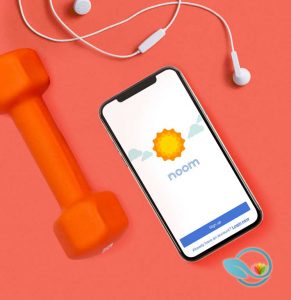 Noom is the first weight loss program on this list that is entirely app-based. The paid subscription is priced similarly to in-person WW, making it relatively expensive for an app. In exchange for that subscription, you get virtual weight loss advice in a gamified environment. Noom makes weight loss like a game. You earn points for learning about nutrition and staying on-target, for example. Noom encourages you at every step of the way – even when you experience a setback.
Noom is the first weight loss program on this list that is entirely app-based. The paid subscription is priced similarly to in-person WW, making it relatively expensive for an app. In exchange for that subscription, you get virtual weight loss advice in a gamified environment. Noom makes weight loss like a game. You earn points for learning about nutrition and staying on-target, for example. Noom encourages you at every step of the way – even when you experience a setback.
Noom also matches you with a coach and puts you in a group based on the answers you provided in your initial questionnaire.
Nutrisystem
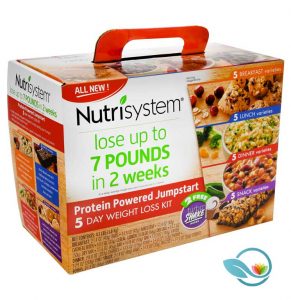 Want someone to tell you exactly what to do and what to eat to lose weight? Nutrisystem may be the best choice for you. Nutrisystem can be expensive, and not everyone likes the food options. However, it’s also proven to be effective: by following the Nutrisystem meals, you can genuinely enjoy powerful weight loss results.
Want someone to tell you exactly what to do and what to eat to lose weight? Nutrisystem may be the best choice for you. Nutrisystem can be expensive, and not everyone likes the food options. However, it’s also proven to be effective: by following the Nutrisystem meals, you can genuinely enjoy powerful weight loss results.
That being said, Nutrisystem ranks low on our list for a reason: dieters tend to give poor reviews of the food. Some claim the food is overly processed. Others claim it just doesn’t taste like anything.
However, if you want to be told exactly what to do and what to eat without thinking for yourself, then Nutrisystem may be one of the better options.
Our Rankings
Ranking today’s weight loss programs is difficult. Every weight loss program claims to help you lose weight quickly and easily. When every weight loss program makes a similar promise, how can we separate one program from another?
Weight loss programs also vary widely by type. Do you want to be told what to do? Do you want to have pre-packaged low-calorie meals delivered to your house ready to eat? Do you want to track everything through an app? Do you want to learn how to cook your own recipes?
Some of the factors we used to collect our rankings included:
Scientific Evidence: Some of the weight loss programs listed above have been studied in professional settings, with results published in peer-reviewed journals. That’s great! Other weight loss programs make bold claims about their effectiveness without backing up those claims with any evidence. Scientific evidence of real, long-term weight loss was the most important factor in ranking the weight loss programs above.
Long-term Adherence: Some diets help you quickly lose weight, only for you to quickly gain it all back within a few weeks. If a diet helps you lose 20 pounds in 30 days, but then you gain back 19 pounds in the next 30 days, then that’s not a very effective diet. Adherence is particularly a problem with some of the subscription-based diet programs listed above. Dieters get accustomed to the pre-packaged meals but never learn how to cook healthy meals for themselves. Long-term adherence played a crucial role in the rankings above.
Long-Term Results: Long-term adherence is slightly different than long-term results. Some diet programs – like low carb diets – are notorious for ruining your metabolism. You might lose weight short-term, only to gain it all back long-term. We analyzed the long-term results of the diets above over 1 month, 6 months, 1 year, 3 years, and 5 years.
Price and Value: Some of the weight loss programs listed above weren’t paid programs offered by private companies. You can follow vegetarian and Mediterranean diets for free, for example, without paying for an app or subscription. However, these programs can also be hard for certain people to follow. Some people don’t mind paying a few extra dollars to be told what to do to lose weight.
Self-Directed Versus Directed: Some people like to receive pre-packaged meals, while others would rather buy their own recipe books and ingredients. We don’t assume to know what you want, so we collected a range of options on our list of the best weight loss programs.
Company Transparency and Reputation: Companies like WW and Jenny Craig are some of the best-known companies in the weight loss space. However, not all weight loss program companies offer strong transparency and honesty. We emphasized companies that were transparent and reputable over companies looking to make a quick buck through overpriced diet pills.
Food Quality and Tastiness: Some weight loss programs deliver pre-packaged low-calorie meals to your house daily, but the meals are so gross that they’re tough to eat. Food quality and tastiness played a huge role in our rankings. If a diet program’s food tastes gross, then you’re unlikely to follow it for long anyway.
Customer Reviews and Other Factors: We analyzed a number of other factors to create the rankings above, including customer reviews and doctor recommendations, among other things.
Who Should Join a Weight Loss Program?

Weight loss programs are, understandably, designed for anyone who wants to lose weight. Studies have shown that most people in developed countries are overweight. In some countries, nearly 70% of the population is overweight.
Of course, some people want to lose weight even when they’re already a healthy weight. Some people want to lose weight for the summer. Others want to fit into a wedding dress.
Put simply, there are plenty of reasons to join a weight loss program.
The weight loss programs above work in different ways. Some programs hold your hand through the entire process, telling you exactly what to eat and at what times of the day to eat it.
Other programs take a hands-off approach, allowing you to research your own recipes and keep yourself honest.
Some of the weight loss programs above aren’t even strictly programs: the vegan diet, for example, and the Mediterranean diet, are free and easy for anyone to follow. All you need to do is look up a few recipes and buy groceries.
Benefits of Weight Loss Programs

Do weight loss programs have any concrete benefits? Do weight loss programs really help you lose weight? Or are they just low-quality programs designed to sell overpriced supplements and meal kits? Let’s look at some of the evidence behind today’s most popular weight loss programs.
First, one of the best ever studies on weight loss programs was published in the Annals of Internal Medicine in April 2015. That study compared weight loss programs based on their scientific results. Researchers looked at 45 studies comparing different weight loss programs. 39 of the 45 studies were randomized, controlled trials. All of the studies took place over a minimum of 12 weeks. After examining all of these studies, researchers found that certain weight loss programs were associated with better weight loss results than other programs.
Researchers found that Jenny Craig led to the best weight loss after 12 months, giving dieters 4.9% greater weight loss compared to a standard diet and exercise program. Other analyzed programs included Weight Watchers or WW, which led to 2.6% greater weight loss results, as well as the Atkins diet, which resulted in 0.1% to 2.9% greater weight loss. Low-calorie diet programs like Health Management Resources (HMR), Medifast, and OPTIFAST led to 4.0% greater weight loss in the short-term, although results were mixed over the long-term.
Ultimately, researchers concluded that study with the following:
“Clinicians could consider referring overweight or obese patients to Weight Watchers or Jenny Craig. Other popular programs, such as Nutrisystem, show promising weight-loss results; however, additional studies evaluating long-term outcomes are needed.”
One of the biggest problems with analyzing weight loss programs is that few programs have good long-term adherence rankings. Many weight loss programs are successful in the short-term (1 month to 12 months), but dieters gain back all the weight over the long-term (1 to 5 years).
Long-term weight loss is so rare, in fact, that there’s literally a national registry of “successful losers”. The National Weight Control Registry, or NWCR, was founded in 1994 by Rena Wing, Ph.D. The goal is to determine which weight loss programs are most effective over a long period of time, as well as which physical and psychological traits are associated with long-term weight loss.
Today, the NWCR consists of more than 6,000 individuals who have maintained a weight loss of at least 30 pounds for an average of more than 5 years. Individuals on the registry have several things in common, including engaging in high levels of physical activity, consuming a diet low in calories and fat, and self-monitoring weight and dietary intake.
According to the NWCR, other factors were also associated with long-term weight loss, including not skipping breakfast, maintaining a consistent diet, and exercising at least one hour per day. Based on this information, it seems long-term weight loss is more about behavioral factors than specific diet or exercise routines. If you find a diet that works for you and stick to it while also maintaining adequate exercise, then you could enjoy long-term weight loss results.
Good weight loss programs are aware of poor long-term weight loss results and take steps to correct them. Today’s leading weight loss programs all emphasize the power of education, teaching dieters to maintain healthy diet habits at home. If you rely too much on pre-cooked, pre-portioned low-calorie meals, then you may never learn to cook healthy meals for yourself.
While weight loss programs may vary in their efficacy and strategies, one thing is clear: weight loss can lead to powerful health benefits. In this study published in the International Journal of Obesity and Related Metabolic Disorders in 1992, researchers found that the effects of modest weight loss were significant. Obese and overweight individuals who experienced modest weight loss tended to live longer, have lower blood pressure, have a reduced risk of disease, and have better ratings in many other biological factors. In other words, losing a little bit of weight today can help you live longer, reduce your risk of heart disease, and reduce your risk of diabetes, among other benefits.
In fact, in a separate study, weight loss proved to be even more effective than exercising when it came to improving your health – at least among those who were already overweight. The study, published in 1995, showed that men who lost weight had a greater improvement in their risk factors for cardiovascular disease than men who exercised without losing weight.
Weight loss can improve more than just your physical health: it can also improve your mental health. This study published in 2011 found there was a significant correlation between weight loss and reduced symptoms of depression. That study involved nearly 500 obese individuals going through a weight loss trial.
A separate study in Australia in 2018 demonstrated similar results. Researchers analyzed overweight and obese men undergoing a weight loss program in Australia. 72% of men who had depression at the beginning of the study (before losing weight) no longer met the clinical criteria for depression at the end of the weight loss study. The average amount of weight lost during the study was modest: men only lost about 10 pounds, on average.
Overall, thousands of studies have been performed to demonstrate the effectiveness of various weight loss programs. These studies rarely indicate that one weight loss program is significantly better than another over the long-term. However, almost all of the studies show that behavioral factors – like sticking to a steady diet and exercise routine every day over a long period of time – is the biggest indicator of long-term weight loss.
Side Effects of Weight Loss Programs

Side effects of weight loss programs vary widely based on the program.
Some weight loss programs are downright deadly. “Starvation diets” or some of the hardcore fasting diets, for example, can cause significant health problems or even death.
Other weight loss programs involve too much of one ingredient or too little of another. Dieters who aren’t careful could find themselves significantly deficient in one nutrient or another, creating serious long-term health problems.
Low-carb diets, for example, have been shown to reduce your metabolic rate over time. That means your body processes food less quickly and efficiently. You might lose weight in the short-term because you’re cutting out carbs. In the long-term, however, your metabolic rate is worse, which means you might gain all of the weight back.
High-fat diets like the keto diet, meanwhile, have their own problems. Eating too much fat could increase your risk of cardiovascular disease. At the same time, your body needs certain fats. Research has shown that low-fat diets can cause omega 3 fatty acid intake to plummet, which also increases your long-term risk of cardiovascular disease.
Thinking of getting gastric bypass surgery to lose weight? Bariatric surgery can encourage you to eat less. However, eating fewer calories is often associated with nutritional deficiencies. In this study, researchers found that your nutritional deficiency was proportional to the amount of weight lost. Based on this study, it seems likely that restrictive weight loss programs where you limit the number of calories could lead to similar issues.
Ultimately, many of these weight loss program side effects can be solved with careful dietary tracking or doctor supervision.
FAQs About Weight Loss Programs

Q: What’s the best way to lose weight quickly?
A: The best way to lose weight quickly is to stop eating anything. The second best way to lose weight quickly is to follow a low-calorie diet while still getting your recommended Daily Value of nutrients. If you have the mental fortitude to follow a healthy, low-calorie diet over a long period of time, then you could enjoy significant weight loss results – at least over the short-term.
Q: What’s the best way to lose weight and keep it off?
A: Crash diets and starvation diets are a great way to lose weight quickly. Studies have shown, however, that they rarely lead to long-term weight loss. Most dieters gain the weight back within 12 months. Studies have also shown, however, that the best long-term weight loss results occur in patients who undergo behavioral changes. If you can maintain a steady diet and exercise routine every day, for example, then you should have no trouble losing weight and keeping it off.
Q: What’s the best weight loss program for men?
A: Women frequently complain that men can lose weight more easily. That’s somewhat true in the short-term, although long-term results are mixed. 77% of the members of the National Weight Control Registry, for example, are women. Some researchers believe that part of the problem is that men believe working out alone is enough to lose weight. There’s a stigma among some men that dieting is for women. Any of the diet programs listed above will be good for both men and women seeking to lose weight. All weight loss programs listed above are catered to both men and women.
Q: What’s the most successful commercial weight loss program?
A: According to the review roundup mentioned above, Jenny Craig has consistently outperformed its competitors in randomized controlled trials (RCTs). Dieters following Jenny Craig lost 5% more weight than the average person just following a diet and exercise routine. However, there have been few studies analyzing the long-term weight loss results (1 to 5 years) of any major commercial weight loss program.
Q: Are weight loss programs dangerous?
A: They can be! Certain people don’t need to lose any more weight, for example. Others fail to maintain adequate nutritional intake during the program. Some people try starvation diets or crash diets that can wreak havoc on your body’s systems. To avoid all of these dangers, consult with a medical professional before beginning any weight loss program.
Q: What separates good weight loss programs from bad ones?
A: Good weight loss programs consistently offer behavioral guidance in addition to diet and exercise guidance. You can tell someone to diet and exercise, but until that person makes behavioral changes, it’s unlikely the person will lose weight long term. Some of the best weight loss programs listed above assign a diet coach to you to improve effectiveness.
Q: Are weight loss programs expensive?
A: Some weight loss programs deliver pre-packaged, ready-to-eat, low-calorie meals to your house every week while also providing customized guidance. These programs, understandably, can be very expensive, costing anywhere from $100 to $500 per week. Other weight loss programs are free and available to anyone with a smartphone. Some offer a mix of free and premium services: you can pay an extra $5 to $10 per month for customized guidance and advanced features for example. Of course, some of the weight loss programs listed above are completely free: you just need to buy groceries.
Final Word
There’s no single “best weight loss program” available today.
Every weight loss program has its own unique pros and cons. Different weight loss programs will appeal to different people.
The best weight loss programs emphasize not only diet and exercise, but also long-term behavioral changes. If you can learn how to cook healthy meals for yourself long-term while also exercising daily, then you may be able to easily lose a lot of weight with any weight loss program.













